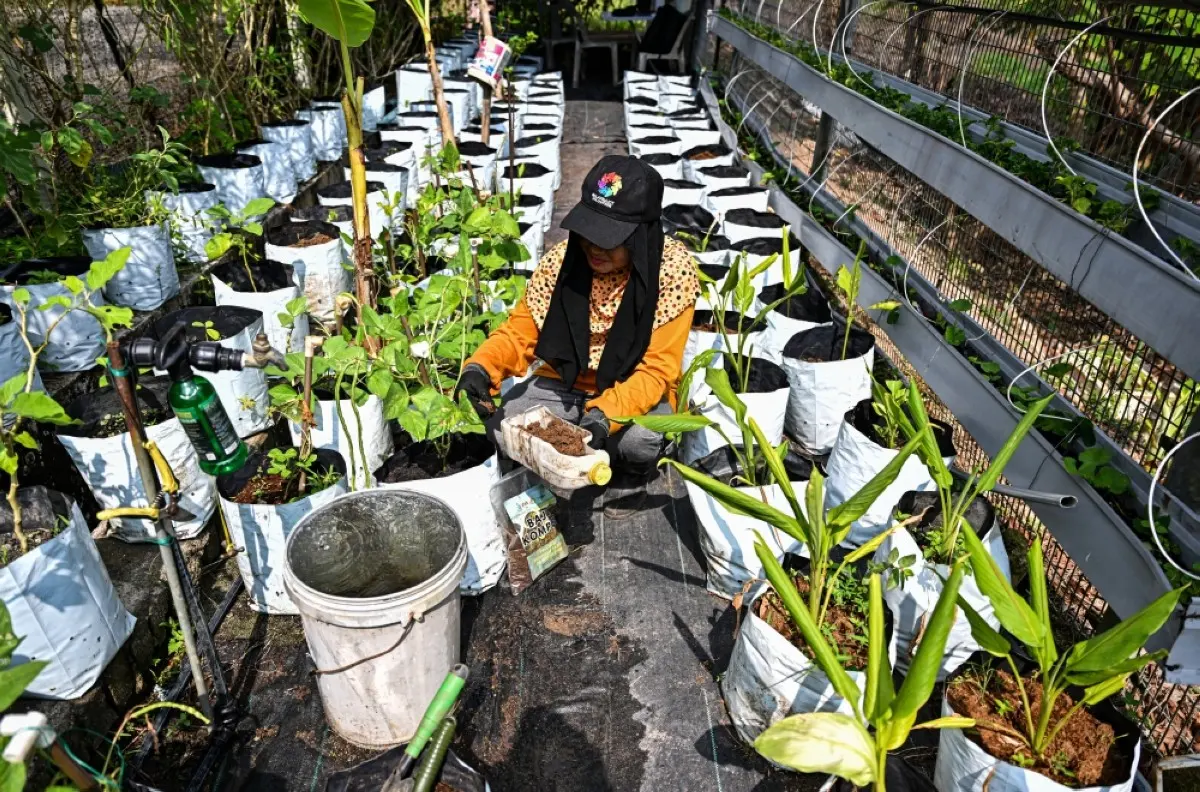The initiative in Pahang represents a step towards sustainable waste management and agricultural practices.
In a pioneering move aimed at curbing food wastage and promoting sustainability, people breaking their Ramadan fast outside a mosque in Malaysia are now disposing of their leftovers into a machine that converts the food scraps into organic fertilizer for crops. This modest government initiative, launched in the central state of Pahang, holds the potential to significantly reduce wastage, particularly during the Muslim holy month, when substantial amounts of food are discarded daily.
The mobile machine, deployed at a park in the heart of the state capital Kuantan during Ramadan, serves as a focal point where many families gather every evening to feast on inexpensive local dishes after a day of fasting.
Sharudin Hamid, the state director of Solid Waste and Public Cleansing Management Corporation, revealed that the machine processes approximately 25 kilograms (55 pounds) of scraps daily. While this amount constitutes only a fraction of the more than 13,000 tons of food sent to landfills across the Muslim-majority country each day, the initiative has begun to raise awareness about food wastage.
“The main objective is to ensure that the waste is not sent to landfills,” emphasized Sharudin in an interview with AFP. He underscored the project’s significant impact on fostering environmental conservation, particularly in terms of reducing food waste.
Food scraps are deposited into the machine, where they undergo a 48-hour process of slow mixing with rice husks and sawdust. The resulting brownish-colored waste is then packaged and distributed to farmers to be used as fertilizer on their crops.
Abdul Shukor Mohamad Salleh, 27, voiced his support for the initiative while purchasing local delicacies at a Ramadan food market in Kuantan. He remarked, “Things that grow from that fertilizer can also become food, which again can be composted into fertilizer. So there’s a natural cycle.”
Zulyna Mohamed Nordin, 53, a farmer with a small plot near the city, attested to the effectiveness of the organic fertilizer derived from recycled food waste. She sprays the organic liquid fertilizer on her vegetable, banana, and pineapple crops. Zulyna receives 30 kilograms of the fertilizer every month, with slightly more provided during Ramadan.
“I have done away with using expensive chemical inputs since June last year. This is natural, organic, and boosts productivity,” Zulyna stated, highlighting the tangible benefits of the organic fertilizer. “My leafy vegetables are bigger and greener,” she added, affirming the positive impact on her crop yield and quality.
The initiative in Pahang represents a step towards sustainable waste management and agricultural practices. By harnessing technology to convert food waste into valuable organic fertilizer, Malaysia is pioneering innovative solutions to address environmental challenges. As awareness grows and more individuals and communities adopt similar initiatives, the country inches closer to a more sustainable and environmentally conscious future.
